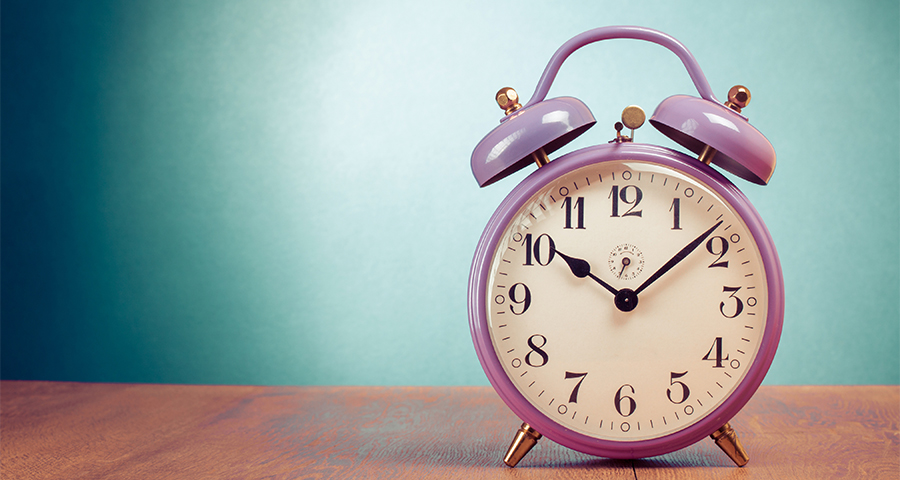Advice
Preparing Baby for Clock Change


Baby / 24 October, 2024 / My Baba
Preparing for the clock change can make life easier ahead of the clocks going back on Sunday, 27th October. Sleep expert Dave Gibson shares his helpful advice on how to handle the clocks going back.
The clocks change by an hour twice a year in the UK. This happens at the start and the end of British summertime. With the clocks going back, we should all be able to enjoy an extra hour in bed. Right? Wrong… When this happens, the 60-minute leap of our total sleep routine often makes life impossible for babies and children who don’t fully understand why things are being turned upside down and why mummy and daddy are still in bed when they are bright and breezy in the old time zone.
Rather than make the adjustment all in one go, it’s far better to stagger the change over six days. This is closer to our natural body clock’s expectations that things change by roughly 2 minutes a day and is much easier for children and babies to cope with. In fact, making the change in a single day is now known to create an effect called social jet lag, as it mimics a jump in time zone similar to long-haul flights across different time zones. All the body’s systems can get affected including digestion and mental alertness.
Here are my tips to minimise the effect of the clock change on young children and babies:
Tips for preparing for the clock change:
Make a gradual adjustment
It takes a little prep, but the clock change can be managed. Try moving bedtimes and wake times back by ten minutes a day over a six-day period. Here 8 pm becomes 7.50 pm, 7.30 pm becomes 7.20 pm and so forth. If you have older children they can normally cope with a 15-minute adjustment over four days. Begin on Thursday evening, and it’s half term, so you don’t have to worry too much about altering their daily routines too much.
Adjust all routines within the day
Adjusting every part of your day will keep every part of your body clock in sync. This includes nap time and bath time for babies and young children and all meal times for the whole family. For older children who no longer have a bath you could get them to read a book later or longer, or start your bedtime routine such as cleaning teeth (without the bright light on) later.
YOU MIGHT ALSO LIKE
Discover the Toniebox – The Perfect Christmas Gift for Kids
Where To Pick A Pumpkin This October: Locations All Over The UK
Get outside in order to get the sunlight
Early morning sun is an essential part of helping the body to wake up. It stimulates cortisol production, the ‘wake-up hormone‘, and makes it easier to get to sleep in the evening as it strengthens our body clock. (Aka, the circadian rhythm). Sunlight on our skin also makes vitamin D, which helps us cope with the winter blues and improves our mood and sleep.
Exercise outside too
Plan your mornings with any exercise for the day, with a more relaxed afternoon to seek out your children’s energy, allowing them to stay up later. Keep the lights slightly brighter than normal in the early evening, too, to stretch the evenings a little each day.
Improve ‘sleep hygiene’ for you and the whole family
Good sleep for the whole family starts with parents leading by example. Educate older children about why sleep is important and lead by example by not taking your phones into the bedroom, making it easier to set reasonable boundaries with one rule for all. If you have poor sleep hygiene, your children will learn this habit from you.
Don’t worry if it does not go to plan
Let’s face it: preparing for the clock change might not go to plan. Regardless of things going wrong and not being able to get things sorted either early in the week or on the night itself, any disruption to children’s sleep tends to be temporary. Most babies, infants and children are back on track within three days to a week maximum.
Happy Halloween!
Article by Dave Gibson, the founder of The Sleep Site.
Dave has been practising as a naturopath and osteopath in London for over 15 years and he is also a qualified hypnotherapist, providing naturopathic advice across a wide range of conditions to promote good sleep patterns and quality sleep.
READ NEXT
Decorate Your Door Step This Halloween With These Frightfully Ghoulish Ideas
Footwear To Beat The Chill: Shop This Season’s Comfiest Boots
-

 Destination8 months ago
Destination8 months agoSingapore Airlines CEO set to join board of Air India, BA News, BA
-

 Breaking News10 months ago
Breaking News10 months agoCroatia to reintroduce compulsory military draft as regional tensions soar
-

 Gadgets3 months ago
Gadgets3 months agoSupernatural Season 16 Revival News, Cast, Plot and Release Date
-

 Tech News12 months ago
Tech News12 months agoBangladeshi police agents accused of selling citizens’ personal information on Telegram
-

 Productivity11 months ago
Productivity11 months agoHow Your Contact Center Can Become A Customer Engagement Center
-

 Gadgets3 weeks ago
Gadgets3 weeks agoFallout Season 2 Potential Release Date, Cast, Plot and News
-

 Breaking News10 months ago
Breaking News10 months agoBangladesh crisis: Refaat Ahmed sworn in as Bangladesh’s new chief justice
-

 Toys12 months ago
Toys12 months ago15 of the Best Trike & Tricycles Mums Recommend























